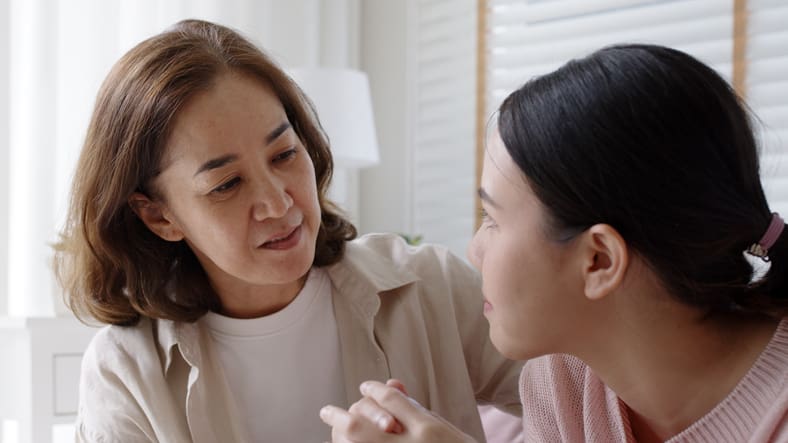Watching someone you care about struggle with a drug or alcohol addiction is heartbreaking. You have tried talking to your loved one but were unsuccessful in motivating them to get the help they need. You feel hopeless as you see your loved one suffering. You may be able to help them by planning an addiction intervention. An intervention can provide your family member or friend the motivation to get the addiction treatment they need.
What is an Addiction Intervention?
An addiction intervention is not a form of treatment for addiction. It is a structured conversation between a person struggling with addiction and their loved ones, often with the help of a professional interventionist. By confronting the addicted person, family and friends hope to help that person see the negative consequences of their behavior and agree to seek treatment.
Two Types of Interventions: Formal and Informal
Interventions can be either formal or informal. A formal intervention is typically planned and organized by a professional interventionist. It will involve the person with addiction, a select group of their loved ones, and the interventionist. The interventionist will help the loved ones to communicate their concerns clearly and directly. They will also help the person with addiction to understand the need for treatment.
An informal intervention is less structured and may be organized by the loved ones. It is crucial to have a plan for the intervention, even if it is not assisted by a professional. The loved ones should decide what they want to say to the person with the substance use disorder and how they want to say it. They should also prepare for the possibility that the person may still refuse to seek treatment.
Who Should Be in the Intervention Team?
An addiction intervention team typically includes four to six people and a professional. The intervention should only involve people truly committed to helping the person. It is also essential to make sure that the people involved are prepared to deal with the emotional challenges of an intervention. The people on the team must be loved and respected by the person struggling with addiction. They could be family members, best friends, coworkers, or members of their faith. Never include anyone your loved one dislikes, anyone who has an unmanaged substance abuse problem or mental health issue, or anyone who may not stick to the agreed-upon intervention plan.
Four Tips for a Successful Addiction Intervention
Interventions can be very effective in helping people with addiction to get the help they need. However, it is important to note that interventions are not always successful.
- Planning the intervention: A successful intervention takes planning. It is not something you can throw together at the last minute. A successful intervention involves choosing the right time and location and deciding who will participate. Before the intervention, everyone needs to educate themselves about the disease of addiction, and the effects it has on their loved ones. It is necessary to have a clear plan for what will be said and done during the intervention.
- Gathering information: This includes collecting information about the person’s addiction, such as the type of drug and how much they are using, how it is affecting their life, and any consequences they have faced. It is also essential to tell the loved one how their drug addiction is affecting family members and friends. This information can help the person see the need for change.
- Holding the intervention: The intervention should occur at a time and place where the person is likely to be receptive to the message. It is best to choose a private setting where the person with the addiction will feel comfortable. The intervention should be led by a trained interventionist or other professional who can help to keep the conversation focused and productive. The loved ones should share their concerns in a loving and supportive way, then ask the person to agree to seek treatment.
- Following up after the intervention: It is critical to follow up with your loved one after the intervention to offer support and encouragement. They may need help finding a treatment program, emotional support, or financial assistance.
You Are Not Alone
If you or a loved one suffers from a drug or alcohol addiction, you are not alone. Addiction is a treatable brain disease that can affect anyone. Located in Terre Haute, IN, Anabranch Recovery Center has a team of caring professionals who can help you travel the path to recovery. We offer a range of programs to meet your specific needs, including detox, residential treatment, and a family program. Take the first step toward sobriety. Contact us today.




